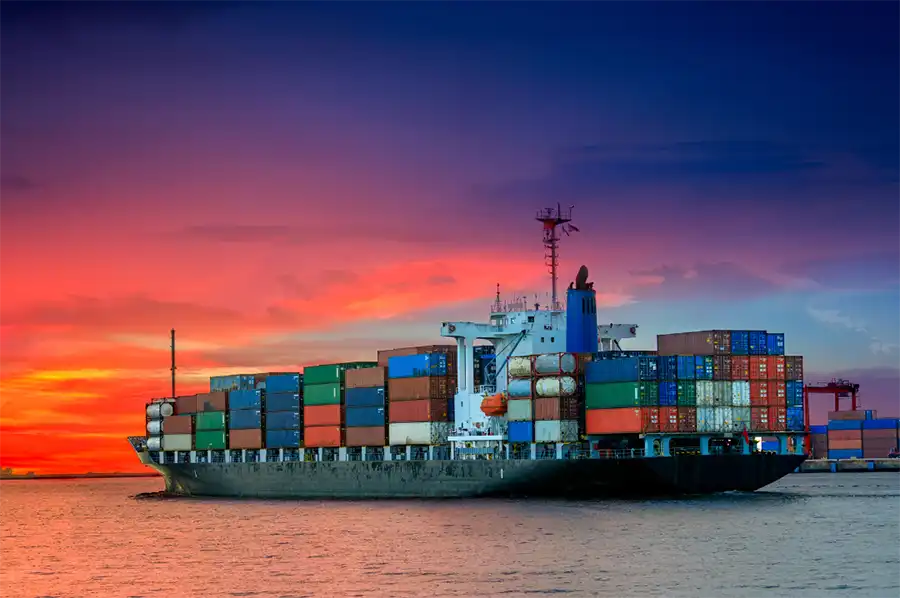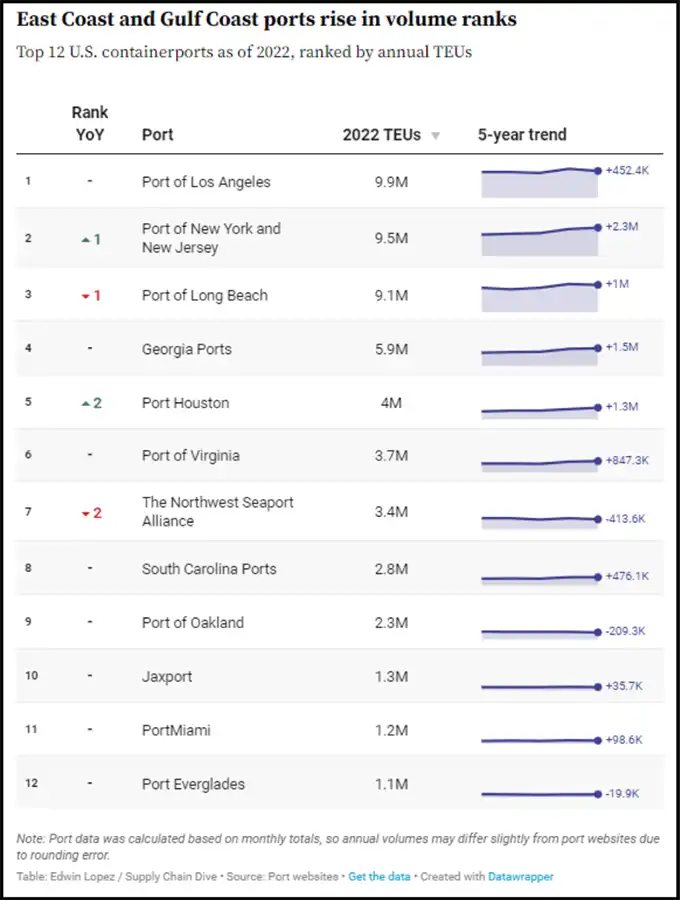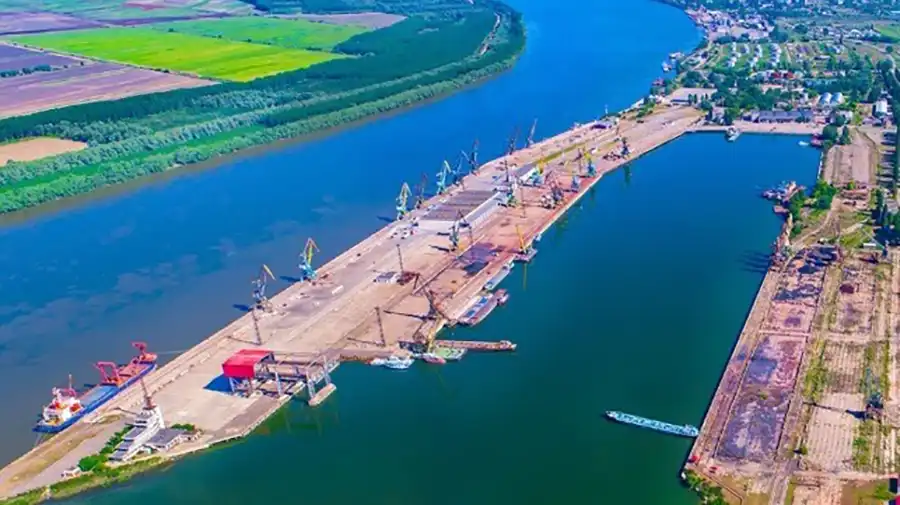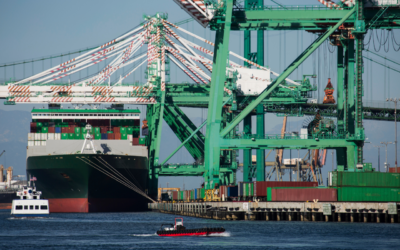1. MSC Bets on Rebound for Global Economy with Positive Signals from China

Mediterranean Shipping Company (MSC), the world’s largest ocean freight line, is betting on a global economic rebound, stating that positive signals for trade demand will emerge in the second half of 2023. The Switzerland-based shipping firm, which commands a 17.5% market share in container traffic, is seen as a bellwether for global trade. While inventories remain high in North America and Europe, MSC’s CEO, Soren Toft, has seen positive signs in China, particularly in the China-to-Europe trade route, which indicates consumer demand.
Toft also cites the US economy as being very strong and positive, despite the presence of inflation. While the combination of weak demand and soft prices has led ocean carriers to cancel sailings, MSC has responded by expanding its fleet size. Additionally, MSC is expanding its footprint in the United States through investments in ports, warehouses, and trucks. The company is also investing in the construction of terminals in countries like Vietnam, reflecting the growth outlook for freight companies.
Above is our summary that captures the highlights in order to save you time, but you can read the full article on CNBC
2. Top 10 US Container Ports of 2022: Which Ports Came Out on Top?
The largest US ports by volume have been dominated by the West Coast ports for a long time; however, the East and Gulf Coast ports have been gaining market share since the pandemic. As a result, there has been a rise in the volumes for U.S. ports, with the Port of Los Angeles, the Port of New York and New Jersey, and the Port of Long Beach taking the top 3 spots for 2022. While the Port of New York and New Jersey held the top spot for a few months last year, it fell back to the second spot by December.
See a full ranking of U.S. container ports that handled more than a million TEUs in 2022 below:

Above is our summary that captures the highlights in order to save you time, but you can read the full article on Supply Chain Dive
3. The Challenges of Finding Warehouse Space for Diverse and Women-led Small Businesses

Small businesses owned by women and minorities often face challenges when it comes to finding warehouse space. However, some companies have been working to create more opportunities for these businesses, such as providing incubator spaces, flexible leases, and mentorship programs. One such company is the Women’s Business Center, which offers a network of support to female entrepreneurs including assistance with securing warehouse space. The organization has also partnered with companies like Prologis, a real estate investment trust, to create more opportunities for women- and minority-owned businesses.
Despite these efforts, there is still a significant disparity in warehouse ownership and leasing for underrepresented groups. Experts suggest that more needs to be done to promote diversity and inclusion in the commercial real estate industry.
Above is our summary that captures the highlights in order to save you time, but you can read the full article on CNBC
4. Three International Regulations That Will Affect US Supply Chains in 2023

As global trade continues to evolve, so do the regulations that govern it. In 2023, several international regulations will have a significant impact on supply chains in the United States. These regulations include the Trade Facilitation and Trade Enforcement Act, the United Nations’ International Maritime Organization’s sulfur emission standards, and the Harmonized System updates from the World Customs Organization.
The Trade Facilitation and Trade Enforcement Act is a critical piece of legislation that aims to enhance supply chain security, streamline customs procedures, and provide for more effective enforcement of trade laws. Meanwhile, the International Maritime Organization’s sulfur emissions standards will reduce the number of sulfur emissions allowed in maritime fuels, helping to curb air pollution and improve public health. The Harmonized System updates from the World Customs Organization will introduce new classifications for products and commodities, facilitating smoother and more efficient trade.
As these regulations come into effect, companies must remain agile and adaptable to remain competitive in the global marketplace. Staying ahead of changing regulations, monitoring compliance, and building resilient supply chain networks are essential to thriving in the years ahead. Contact us today to learn more about how we can help you stay ahead of the curve.
Above is our summary that captures the highlights in order to save you time, but you can read the full article on Forbes
5. How Maersk’s New Container-On-Barge Service in Ukraine Is Revolutionizing Shipping

The port of Reni, Ukraine. Photo courtesy USPA
Maersk, the world’s largest container shipping company, has returned to Ukraine with a new container-on-barge service, linking ports on the Black and Azov Seas to the global container network. The service, which began operations in January, connects ports in the Ukrainian cities of Mariupol, Berdyansk, and Izmail with ports in Europe, the Middle East, and Asia. The move is expected to bring substantial benefits to Ukraine’s economy, as it provides new opportunities for businesses to import and export goods and promotes the development of the country’s port infrastructure.
Maersk’s return to Ukraine after a six-year hiatus is a significant development for the country, as it demonstrates the growing interest of global shipping companies in Ukraine’s strategic location and potential as a hub for trade between Europe and Asia. The new container-on-barge service is expected to benefit businesses of all sizes, providing them with a cost-effective and reliable way to transport their goods. With this new service, Maersk is helping to promote Ukraine as a key player in the global supply chain, paving the way for increased economic growth and development in the country.
Above is our summary that captures the highlights in order to save you time, but you can read the full article on The Maritime Executive


